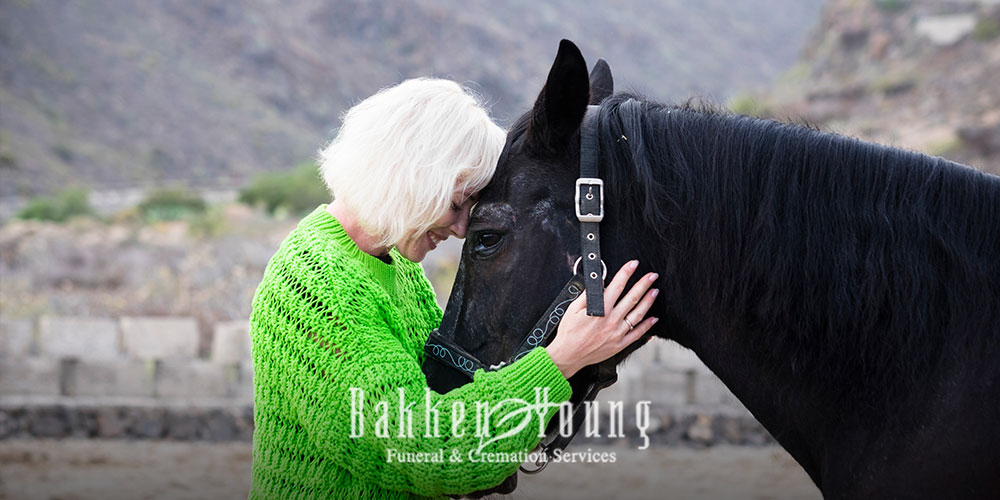When carrying your grief, you may find times when you want to find comfort, but there are no options around you that have helped. You may not be motivated to work on your hobbies or focus on your job. There may be times when you feel like you need a break from the constant reminder of your loved ones’ absence. We understand how grief can be debilitating. That’s why we’re here to offer support. There are multiple ways you can find grief support, and besides joining us for grief groups or webinars, you can turn somewhere else. You can turn to animals, more specifically, equine therapy for grief.
Why equine therapy?
Equine therapy is unrestricted. It is not only for individuals who may be physically immobile or mentally disadvantaged. Equine therapy is one of many that can help anyone with their mental state and improve it. Studies show that riding or petting animals can release positive chemicals in your brain, which increase your happiness and help you find comfort. Besides mentally, riding horses improves your mobility and physical health. Animal interactions are known to lower stress, anxiety, depression, and increase one’s outlook on life, and increase positivity.
What is equine therapy usually for?
While there are professionals who work through non-profits to help individuals and children who are more immobile or face challenges like mental disorders, equine therapy is not just for these individuals.
“Equine therapy has been used to treat anxiety, ADHD, eating disorders, addiction, depression, and many other mental health conditions, and, in addition to targeting symptoms of those disorders, is theorized to help patients build confidence, self-awareness, and empathy.”
It is also worth noting that equine therapy has helped a multitude of veterans who have PTSD, which PTSD can happen to any individual who has experienced trauma. Trauma can occur when experiencing a horrible death. This is why equine therapy is a great option to help those in their grief.
There are different kinds of equine therapy one can experience as well. These include riding, petting, feeding, or brushing horses and simply spending time with them.
How can equine therapy help me carry my grief?
“One reason animal-assisted therapies can be so effective is that animals can help regulate the nervous system, a 2016 study found. Contact with animals may promote feel-good hormones (endorphins) and help calm an overactivated nervous system that is overwhelmed by: trauma, anxiety, depressive symptoms.”
A review of multiple studies proved that in many different equine therapy sessions, depression and anxiety symptoms lessened.
“The relationship between the rider and the horse can enhance and parallel the therapeutic processes needed for positive change in emotions, behaviour and improvement in mental well-being.”
–Mental health benefits of mounted equine-assisted therapies: A scoping review
With this knowledge from the above references, one can find relief through equine therapy. It is a positive way to find peace in nature and connection to another living creature, that is simply there to listen. Horses love attention and can give one the feeling of comfort when they are brushed or stroked. People also can feel a sense of freedom and oneness with horses when they ride.
There are other options
If equine therapy is not for you, we welcome you to join us for our other grief resources. These are more accessible and allow you to connect with others. From grief talks, grief groups, or webinars, we have something for you. Contact us today, and let’s find the right grief resource for you. We are here to help.
Sources:
All About Equine Assisted Psychotherapy from PsychCentral
Equine-Assisted Therapy from Psychology Today
Ward, Jessica et al. “Mental health benefits of mounted equine-assisted therapies: A scoping review.” Health & social care in the community vol. 30,6 (2022): e4920-e4935. doi:10.1111/hsc.13904


Add Comment